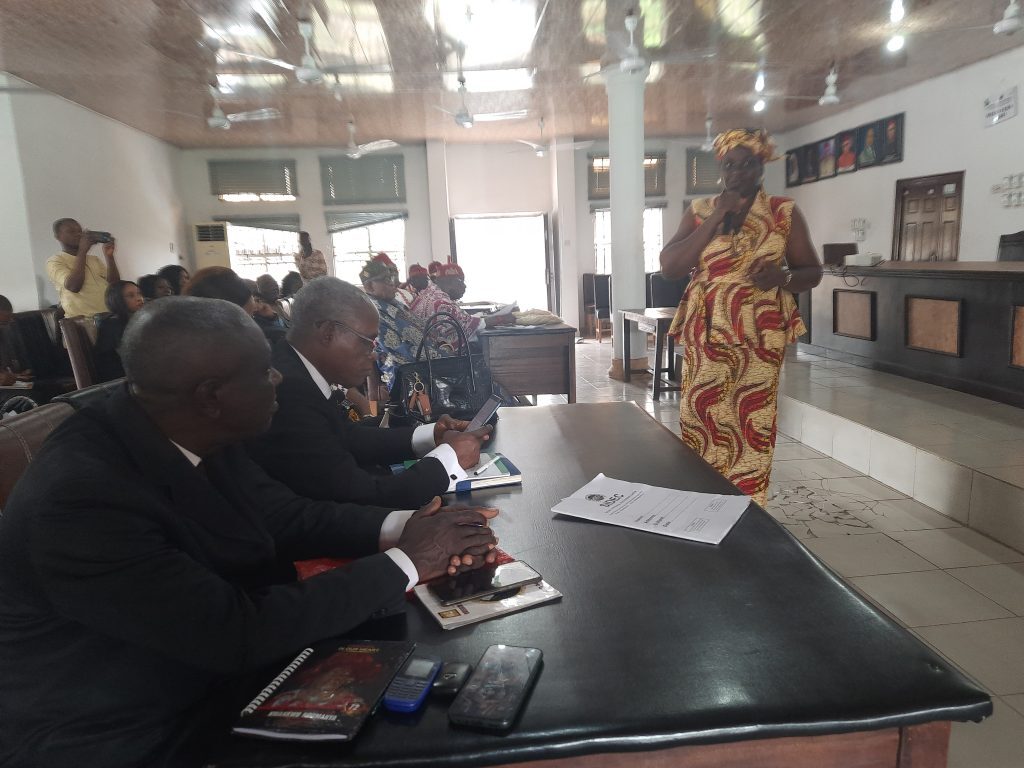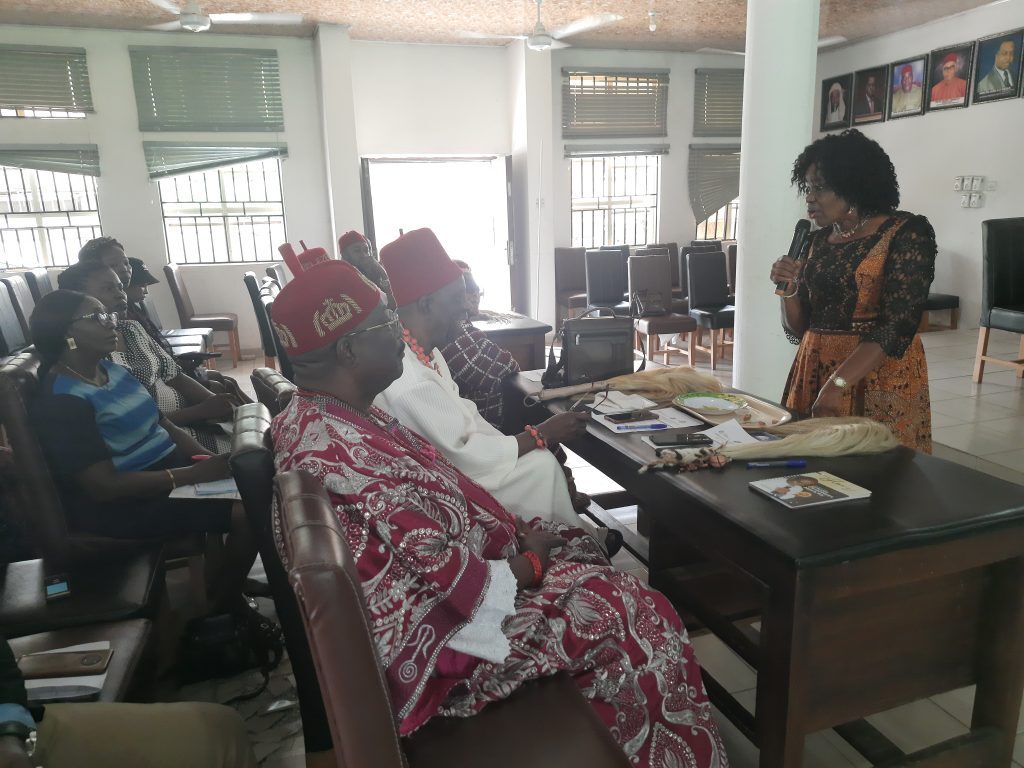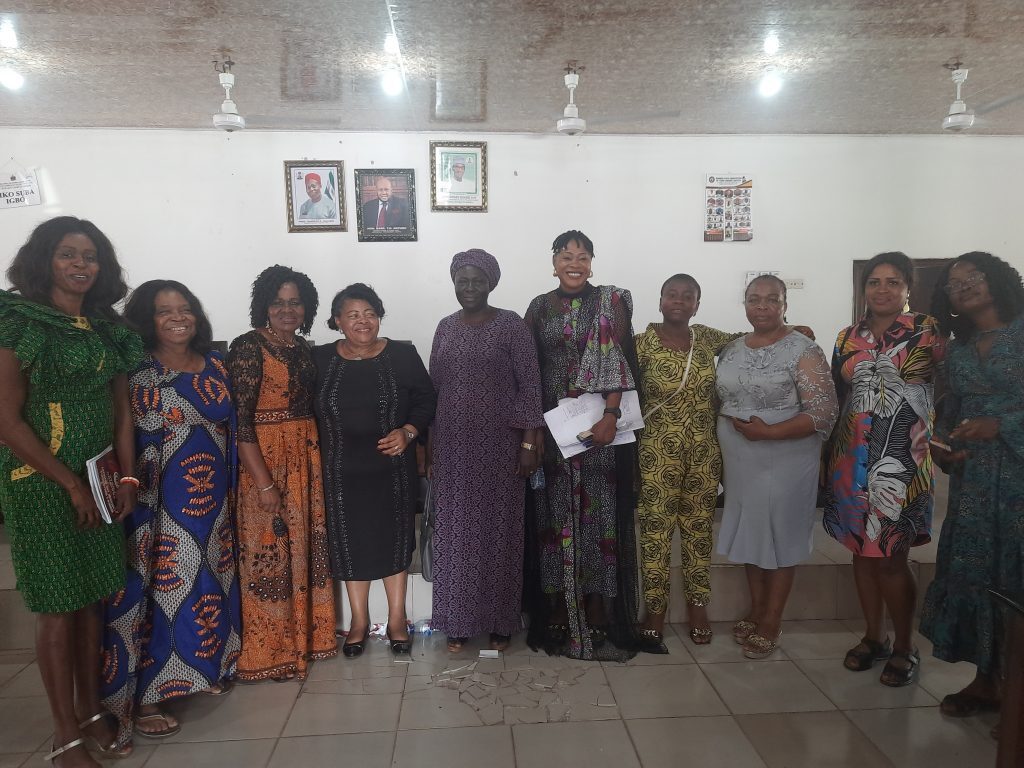By Gabriel Chy Alonta
Barely a week after the traditional rulers under the aegis of Anambra State Council of Traditional Rulers, led by its chairman, HRH Igwe Nnaemeka Achebe, Obi of Onitsha, made some resolutions and commitments to end all norms and practices affecting women and girls in the state, other stakeholders have intensified call to eliminate violence against women and girls, whom they described as most vulnerable.
The stakeholders made the call during a Community Town Hall Meeting to change norms and practices that promote violence against women and girls in Anambra state, organised by WomenAid Collective (WACOL) and 50-50 Women in collaboration with the Ford Foundation. The event took place in Awka on Tuesday, September 6, 2022.
Participants in a group photograph
In a remark, the WACOL Founding Director, Prof. Joy Ngozi Ezeilo, represented by WACOL Head of Communications, Mrs. Egodi Igwe, while welcoming participants to the event, called for equity, inclusion and justice especially for women and girls to give them a sense of belonging and reduce friction with men. According to Prof. Ezeilo, women are critical members of the society, and need to be recognized in the scheme of things. She lamented the spate of cases dwelling on rape, domestic violence, defilement of minors which WACOL receives, and stressed the need for a holistic approach to promoting gender-friendly norms.
 Mrs. Egodi Igwe welcoming participants to the townhall meeting
Mrs. Egodi Igwe welcoming participants to the townhall meeting
Prof. Ogugua Ikpeze, in a presentation on “Harmful cultural norms against women and girls and its negative impact on the community”, highlighted different violence meted on women and girls, while decrying the level of intimidation, harm, marginalisation, widowhood practice, and deprivation women face. She identified ignorance, environmental, traditional norms, mentality of superiority, mentality of property, and so on, as causes of violence, which, she said, could be instigated by anyone.
Also Prof. Chinyere Okunna, who spoke on “Strategies towards ending harmful norms that promote violence against women and girls: The roles of stakeholders”, reminded traditional rulers of their unique role in changing obnoxious practices in the state, urging them to rise to the occasion. She equally called on other stakeholders present to up their games in the quest to end violence against women and girls.
Prof. Okunna, who is the first female professor of mass communication in Nigeria and Sub-Saharan Africa, said violence was rife because of the entrenched inequality in society, and listed sensitisation, advocacy, and a good reporting system as part of solutions to tackling the human rights abuses against women.
 Prof. Okunna addressing participants at the event
Prof. Okunna addressing participants at the event
In a goodwill message, stakeholders including traditional rulers, religious leaders, women, academia, legal practitioners, ASATU, State Ohanaeze Youths, persons with disabilities, and so on, described the project as laudable, and expressed optimism that such a gesture would reduce marginalization against all genders.
 Some participants in a photograph shortly after the event
Some participants in a photograph shortly after the event
